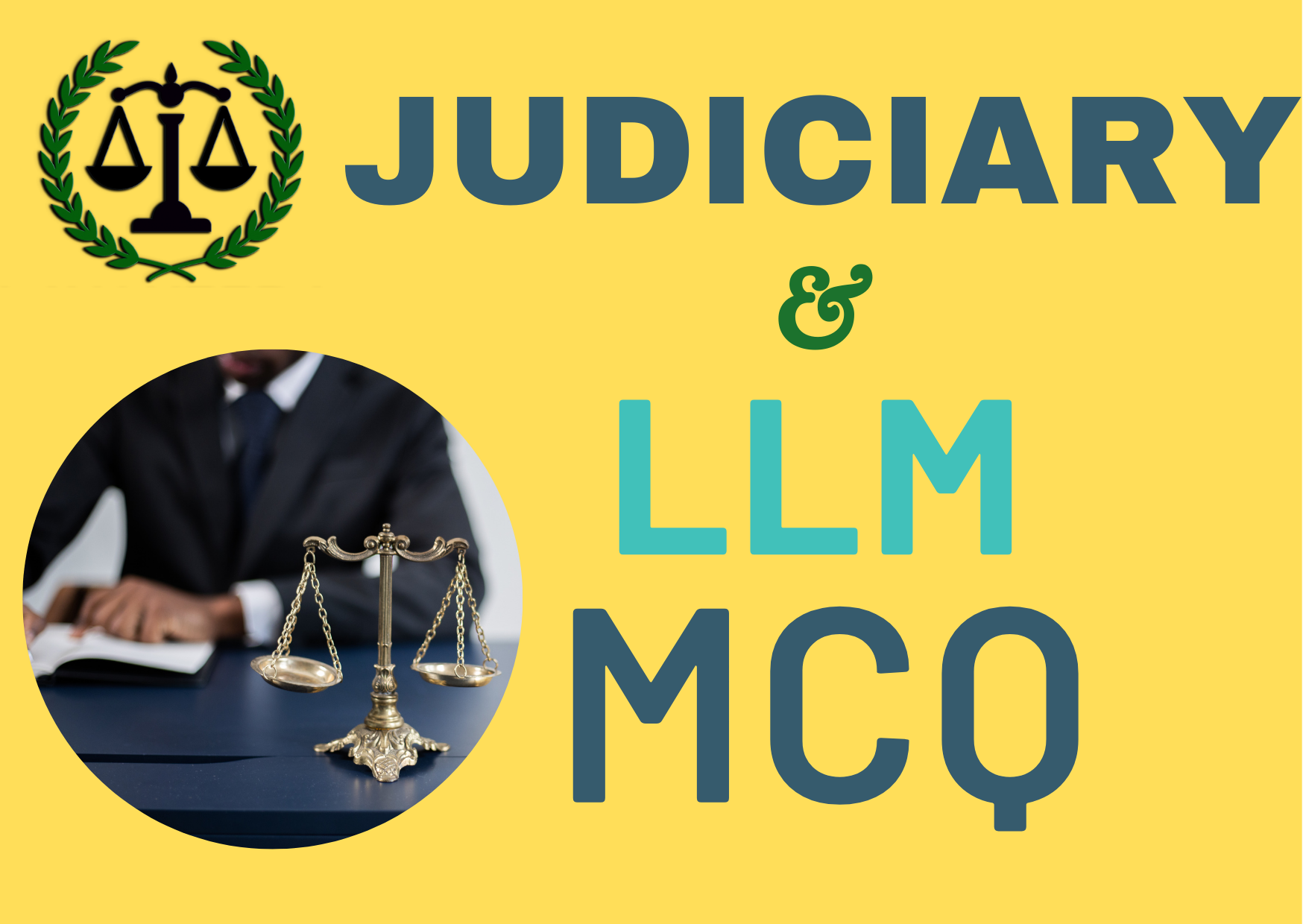
Judiciary & LLM MCQ – 15
Q.1. What is the difference between clauses (1) and (2) of Section 44 Cr.P.C.? (a) Under clause (1) the Magistrate has been given power to

Q.1. What is the difference between clauses (1) and (2) of Section 44 Cr.P.C.? (a) Under clause (1) the Magistrate has been given power to

Q.1. The expression ‘civil nature’ is ____________ the expression ‘civil procedure’? (a) Wider than (b) Narrower than (c) Similar to (a) None of the above

Q.1. Which of the following is not a case of res judicata? (a) Duchess of Kingston Case (b) Chhajju Ram v. Neki (c) Munni Bibi

Q.1. Who among the following is considered to be “father of English Jurisprudence”? (a) Bentham (b) Austin (c) Savigny (d) Ihering Q.2. The plaintiff,

Q.1. A commits house-breaking by day with the intent to commit adultery, and commits, in the house so entered, adultery with B’s wife. Applying Section

Q.1. What is meant by the Legal Maxim/word “ius commune”? (a) Community law (b) Law of Commonwealth countries (c) Common law (d) Common Justice

Q.1. Private arbitration is also described as___________? (a) Domestic arbitration (b) Integral arbitration (c) Fast track arbitration (d) Consensual arbitration Q.2. Part I of

Q.1. Which of the following articles of the Indian Constitution deals with the applicability of habeas corpus? (a) Article 21 (b) Article 32 (c) Article

Q.1. A hires B’s ship to go to Bombay, and there takes on board, on the first of January, a cargo, which A is to
JudgeSaab.com is a digital platform for students and advocates who are preparing primarily for Judiciary Exams across the country.